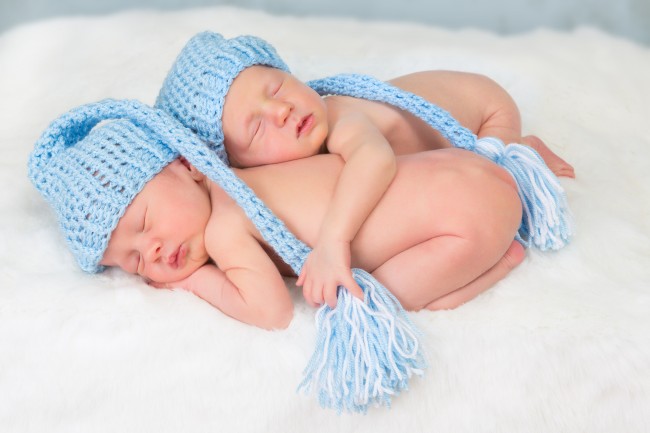Two for the price of one is a neat trick, but one that definitely comes with its own challenges and potential complications.
How common are twins?
Over the past 30 years there has been an increase in the number of multiple births globally.
Since 1980, the number of twin births has increased by 70% in the USA and the number of births involving three or more babies has quadrupled.The two main reasons for this increase are that women are having babies later, and more women are having fertility treatment, such as in vitro fertilisation (IVF).
The biggest increase in multiple births are among women aged 30 and older. Older maternal age accounts for about one-third of the rise, and two-thirds is due to the increased use of fertility treatments.
Other factors that contribute to the development of a multiple pregnancy are hereditary;
- a history of multiple births on a woman’s side of the family increases her chances of having a multiple pregnancy
- race: women of African descent are the most likely to have multiple pregnancies
A high risk pregnancy
Multiples are termed ‘high-risk’ pregnancies. The most immediate risk is pre-term (early) labour resulting in premature birth. A normal gestation is about 40 weeks, but a twin pregnancy often lasts between 35 and 37 weeks.
Nearly half of all twins are born before 37 weeks.
In addition to the possibility of premature births, other medical conditions that are more likely to occur during a multiple pregnancy include:
- pre-eclampsia
- placental problems
- foetal growth problems
Multiple births can also be associated with long-term health problems in the infants. Developmental delays and cerebral palsy occur more commonly in twins than in single births, and there’s a higher risk of health problems with higher-order multiple births.
What to expect when you’re expecting two
When you fall pregnant with multiples, you may need more prenatal check-ups than you would with a single baby. Be prepared for the possibility of experiencing a double dose of everything – higher levels of hormones can mean more severe morning sickness.
Multiples place greater stress on your body: with twins, a weight gain of 20 kg isn’t unusual. You can expect symptoms such as heartburn, indigestion, shortness of breath and extreme fatigue.
Prepare yourself emotionally that you may give birth prematurely, says Lousanne Terblanche, seminar co-ordinator of the South African Multiple Birth Association (SAMBA).
Your hospital bag should be ready and packed by 28 weeks. Plan to take maternity leave from 30-32 weeks, and aim to take five to six months off if possible, she suggests. Organise your home so that the babies’ routines can be managed as easily as possible.
“From 28 weeks of pregnancy, rest a lot with your feet in the air. Sleep on your back with pillows piled under your feet or on your side with a pillow between your knees and a pillow under your stomach.”
“It is possible to have a natural twin birth if the circumstances around your pregnancy are optimal.”
About the author: Dr Noluthando Nematswerani is a Discovery Health Clinical Specialist. For more information on Discovery visit www.dicovery.co.za.
Latest posts by Contributor (see all)
- Video: How much sleep does your baby need? - July 1, 2014
- Music and dance may help your baby’s social skills - July 1, 2014
- Bio-oil’s Marks of Change initiative - July 1, 2014






 Saving...
Saving...